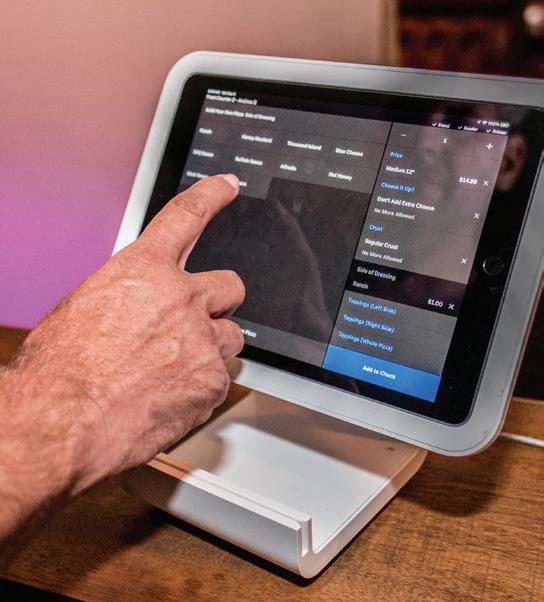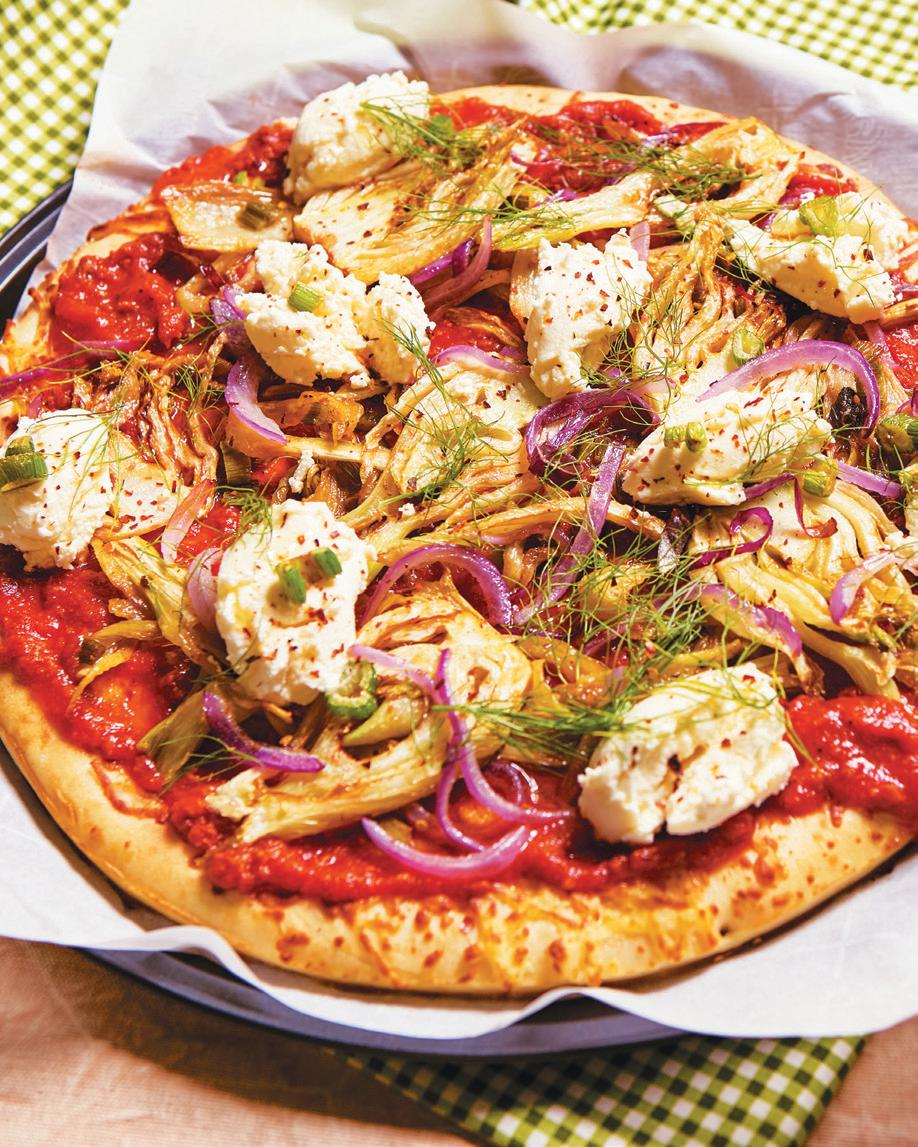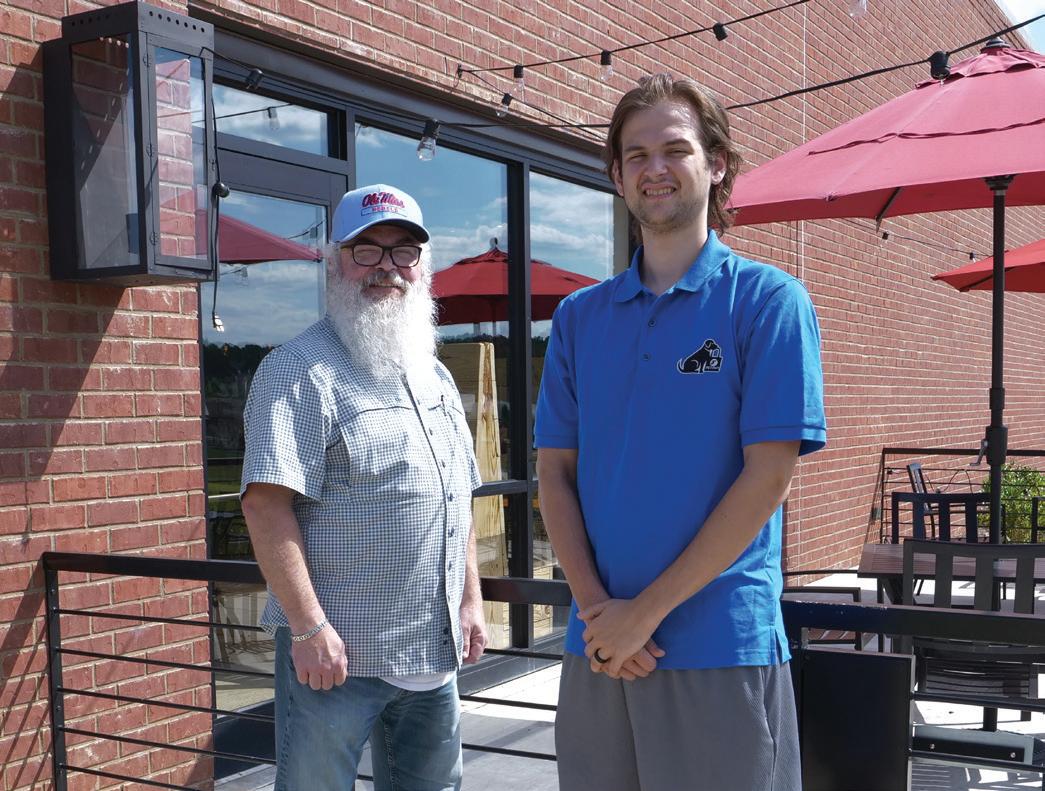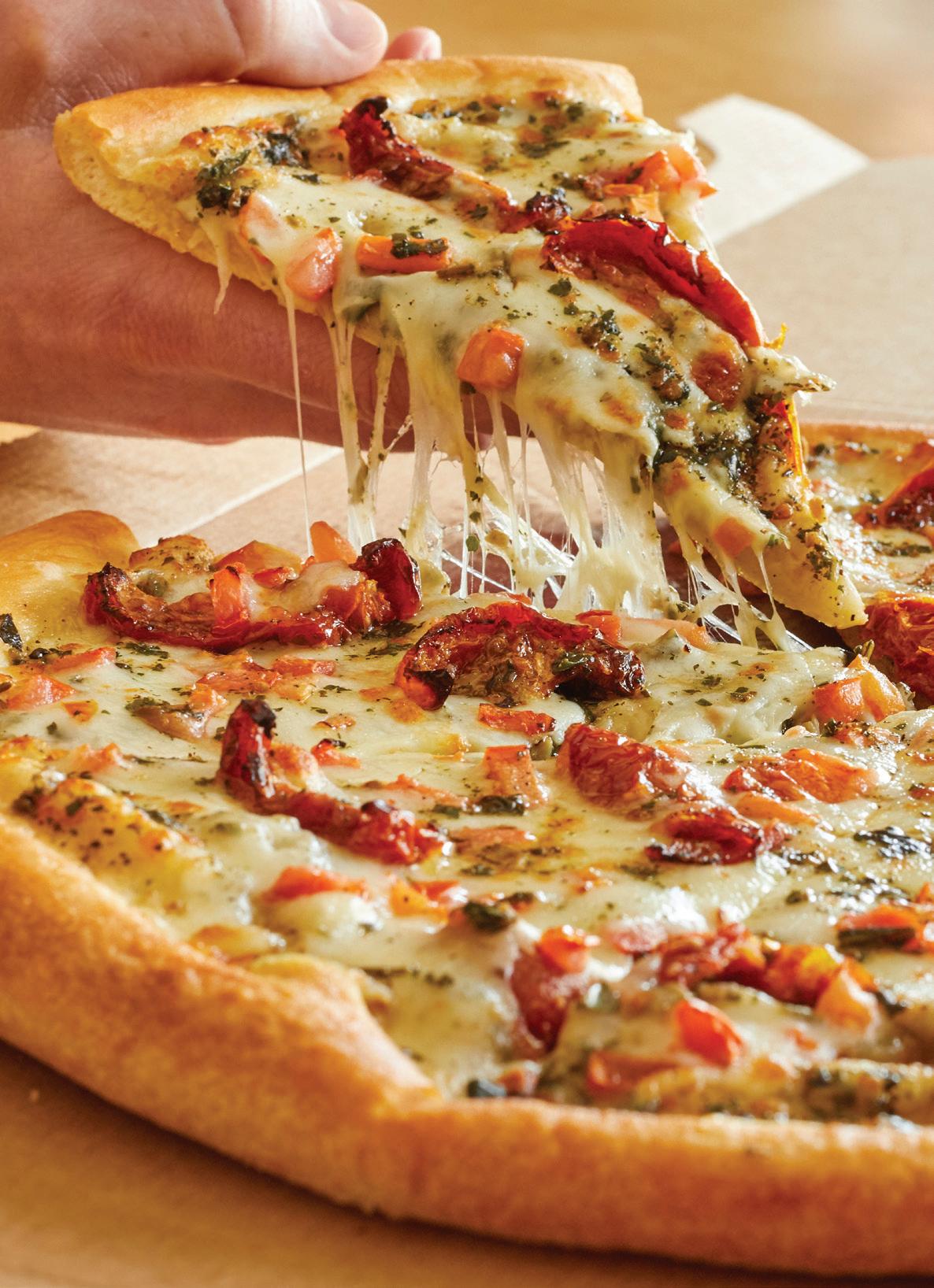
5 minute read
Beyond The Dough
Presented By
Your Best Life!
Close your eyes.
What do you see your “best life” looking like?
Chase that!
Go for that!
Create that!
Sacrifice for that!
Get uncomfortable!
Work for that!
Write it down!
Pray about it!
Work for it!
Tell your family about it!
See yourself living it!
Stop going through the motions!
Our “best life” will require change and sacrifice. It WILL require ACTION.
Get Ready For It!
To learn more about Perfect Crust’s pizza liners and other products, visit perfectcrust.com or email Eric Bam at Eric@perfectcrust.com
About Eric Bam:
A Boston native now living in Tulsa, OK, Eric Bam is VP of sales and marketing for Perfect Crust, with 20 years of experience in the foodservice industry. A powerful force in the workplace, Bam uses his positive attitude and tireless energy to encourage others to work hard and succeed. He has three children and loves helping the men and women of the pizza industry grow their businesses.
but all kinds of restaurants that normally couldn’t offer delivery. When OrangeCrate expanded to Flint, Michigan, he inked a deal with a 21-unit franchise pizza company. “And we just killed it in terms of orders,” he says. “We outsold DoorDash by about six to one.”
But DoorDash eventually snatched the contract away, Simmons says. “We got booted.”

So it’s clear why Simmons enjoys taking on the giants. Since becoming president of the RMDA, which has actually been around for about 20 years, he has made it his mission to help independent restaurateurs and local RDS providers partner up. And the need is real, he says. “We’ve been talking to a lot of smaller mom-andpops as well as national [brands] that want to replace one of the big three [third-party delivery providers] and offer a more personal touch in their orders,” he says.
For an independent restaurateur, Simmons says, “It starts with having a one-on-one conversation and relationship with that RDS. We’re going to help you figure out the best way to make deliveries. Do you want to be listed on our marketplace, or are we only taking orders from yours? How do those orders get pushed into your system’s back end? It’s an ongoing process, and we’re helping you every step of the way.”


Most importantly, commissions are negotiable. “We’re flexible on what we charge, based on what you can afford and what works for both of us,” Simmons adds. “It’s a true partnership.”
OrangeCrate, for example, works with the pizzeria operator to hammer out a mutually beneficial deal. “We make our money on commissions from the restaurant or the customer, depending on what the restaurant wants to do,” Simmons says. “Our typical commission is 15% and gets added to the cost of the order. Restaurants like that model, because it means they don’t need to take a loss for providing the food [for delivery].”
A major third-party delivery company might make you cough up 25% or 35% on every order. “And you just have to make it work,” Simmons says. A local RDS provider will likely cut you a better deal. “We’re looking for ways to help you grow your business and extend your brand. We talk about how that food is delivered, how to deal with customers and solve their issues. It’s all about a relationship. In the end, we present your brand to the customers. So how do you want that to look? If you care about how your brand is presented, you want to work with a local delivery company.”

Putting Restaurants in Control
One of the RMDA’s members is Fetcht, a restaurant delivery provider in Oxford, Mississippi, home to the University of Mississippi and, incidentally, PMQ. As a small but mighty college town and regional mecca for SEC sports, Oxford has a thriving restaurant sector.
After paying his dues for decades in corporate America, Kent Breckinridge launched Fetcht with his son, DeYampert, to help connect more of those restaurants—pizzerias, Mexican shops and every type in between—to their customers through delivery.
And the restaurants don’t pay Breckinridge a single thin dime if they work exclusively with Fetcht, he says. It’s the customers who pay for the luxury of food delivered to their doorstep. “Why do you need to be charged anything to be able to accept orders?” he says. “We do it differently. I don’t have a bunch of shareholders that I’m responsible for…. This affords us to run lean.”

Fetcht uses a “complicated matrix” for pricing its deliveries, marking up the menu “slightly,” Breckinridge says, and then charging the customer a service fee, which varies based on mileage from the individual restaurant to the customer’s doorstep. The base fee is $3.99, starting from the restaurant’s location, he explains, “and then, as we move out into a different radius, there’s a bump. So the farther away from a restaurant you are, you’re going to pay a little bit more [as the customer].”
Again, the restaurateur doesn’t need to be a tech wizard. “I need you to give me a good menu, and I need you to have internet,” Breckinridge says. “There you go. If you’ve got solid internet that I can hook a tablet up to and you give me a good menu, we’ll handle it all. When we’re ready, we’ll set [the tablet] up, teach you how to use it, and we’re off to the races.”
An individual restaurant might not want to offer delivery for every item on the menu, and that’s OK, Breckinridge notes. “The restaurants are in control. They can tell us what they want on their menus and what they don’t. They can change it, or they can send it to me to change.”
Even better, he adds, “We answer our phones. With third-party conglomerates, if the driver has a problem with an order or there’s a mistake, they don’t have anybody to call. If the customer or restaurant needs to change an order, there’s nobody to call. We have a team of dispatchers, and we answer the phone.”
Fetcht’s website and app are loaded with menus from virtually every restaurant in Oxford, including most fast-food operations. Not all of them are Fetcht’s delivery partners—in the case of a “non-participating restaurant,” like an Arby’s or Captain D’s, the customer can still place and pay for an order through Fetcht; a Fetcht team member then places the order directly with that restaurant, and the driver picks it up, pays with a prepaid credit card and delivers it to the customer.
Supporting Local Businesses
Partnering with a local RDS means you know who’s accountable—and who to call—when a delivery gets botched. And both parties have a vested interest in fixing problems. “If the restaurant messes up, then we look bad,” Breckinridge says. “If we mess up, the restaurant looks bad. We’re extensions of each other’s teams.”
Additionally, pizzerias can use a hybrid model, combining in-house delivery with RDS delivery. For example, the pizzeria might want to use in-house drivers for larger orders that will get bigger tips.

And once LocalDelivery.org, the RMDA’s online marketplace, goes live—expected by November 1—those customers who prefer to spend their money locally will be able to find restaurants that work with local RDS providers in their hometowns. “That will be our national marketplace, listing every local restaurant that works with a local RDS,” Simmons says. “There are plenty of companies that tout that they support local but push those deliveries to DoorDash. This is an opportunity for consumers to support those restaurants that truly support local communities.”
Simmons expects to launch LocalDelivery.org with 50,000 to 60,000 restaurants listed soon. Since RMDA is an association for RDS providers only, restaurants don’t need to be members, Simmons says. “They just need to be working with an RMDA independent delivery company for delivery.”
But partnering with a local RDS could be a game changer for your pizzeria if delivery has been giving you fits. As an RDS provider, Breckingridge says, “My job is to help you get more orders. Your job, as the restaurateur, is to prepare the food and have it packaged hot and fresh when we get there. Then we deliver it. And while you’re telling people all about your great food, tell them about us.”
Rick Hynum is PMQ’s editor in chief.

TOPPERS











